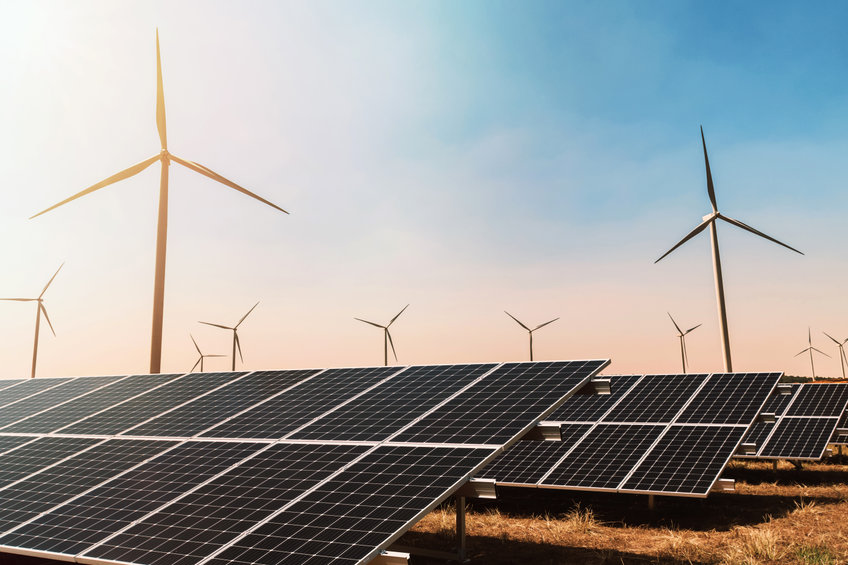
Irate farmers blast environmental harm caused by solar array
Farmers in central Virginia’s Louisa County got a glimpse of the much-acclaimed green energy future – and they don’t like what they see.
Instead of the clean power they were promised, they are dealing with pollution – and lots of it.
Stormwater runoff from Dominion Energy’s Belcher Solar project has spilled into nearby Harris Creek, temporarily turning it into a raging river that has flooded land adjacent to the project causing widespread erosion.
A month-long investigation by Richmond TV station WTVR documents the damage the project has caused. To construct the 1,300-acre (just over two square miles) industrial-scale Belcher Solar array, Dominion Energy clear-cut trees and other vegetation on a parcel that is slightly higher than the surrounding land. And when the area is hit by heavy rains, nearby property owners suffer the consequences.
Bobby Marks, whose property has been in his family for four generations, is appalled by what has happened to his land.
“If I had done something like this to someone else’s property, then probably [Virginia] Department of Environmental Quality (DEQ) and Louisa County would have me in jail or fine me,” Marks told the TV station. “This big company comes in and you can tear up creation and nobody does anything about it.”
Virginia’s DEQ did slap Dominion with a $50,000 fine, but that’s chump change for the deep-pocketed, politically well-connected utility. Company officials have also met with angry property owners in an effort to smooth over some very ruffled feathers. The company attributes the mess it made to “extreme weather events.” But these were nothing more than routine thunderstorms with heavy downpours. As for mitigation, Dominion is planning to plant vegetation around the perimeter of the project to stem the flow of stormwater runoff, something that should have been thought of before the solar project ever got under construction.
A Creek Became a River
“If this keeps going and they don’t get the calculations right on the water flow, then what’s going to happen is all these properties that this affects, it’s not going to be a creek anymore,” local property owner Dewey Collier III told WTVR. “You’re going to have a river and I’m going to have, it’s just gonna be a mess and I don’t want to leave a mess to my kids.”
The same Louisa County Board of Supervisors that approved the project, now readily acknowledges the damage that decision has caused, with one supervisor calling the situation a “catastrophe.” Facing a backlash spread by social media, county officials want to make sure that something like this doesn’t happen again.
“The Board of Supervisors understands the need for development of renewal (sic) energy, but such development must proceed in a manner which includes measures to protect those in the vicinity of associated projects,” Louisa County spokeswoman Cindy King said. “We share the Department of Environmental Quality’s dedication to reasonable regulations that mitigate off-site impacts. With regards to the Belcher project, the Board continues to advocate directly on behalf of impacted citizens and our ongoing efforts with Dominion represent an important tool in this regard. The Board has also formed a Utility Scale Solar Development Committee, which has already recommended against the development of future solar projects which do not demonstrate commitment to thoughtful development and enhanced protection of surrounding resources. The county is committed to the protection of our citizens, and the Committee will continue to work with staff and outside agencies regarding reasonable future measures.”
Look for More Disasters
With Dominion, like many other utilities around the country, eager to jump on the renewable energy bandwagon, more fiascos like the one in Louisa County – whether courtesy of Big Solar or Big Wind – are in the offing. The Biden administration is eager to transition from fossil fuels to renewable energy, come what may. That burden will fall disproportionately on rural areas, where arable land will be used for industrial-scale wind and solar projects.
“According to our research, cumulative waste production will rise far sooner and more sharply than analysts expect,” stated a recent article in the Harvard Business Review. “We see the volume of [solar] waste surpassing that of new installations by the year 2031. By 2035, discarded panels will outweigh new units sold by 2.56 to one.” The waste/pollution problems associated with giant wind facilities are equally daunting. Most of the blades from decommissioned wind turbines are chopped up and dumped in local landfills.
To summarize: There is nothing wrong with Big Wind and Big Solar except that the energy they produce is unreliable and expensive and they create noise, impair public health, reduce property values, kill wildlife, and despoil the natural beauty of the countryside.
Author
Bonner Cohen, Ph. D., is a senior policy analyst with CFACT, where he focuses on natural resources, energy, property rights, and geopolitical developments. Articles by Dr. Cohen have appeared in The Wall Street Journal, Forbes, Investor’s Business Daily, The New York Post, The Washington Examiner, The Washington Times, The Hill, The Epoch Times, The Philadelphia Inquirer, The Atlanta Journal-Constitution, The Miami Herald, and dozens of other newspapers around the country. He has been interviewed on Fox News, Fox Business Network, CNN, NBC News, NPR, BBC, BBC Worldwide Television, N24 (German-language news network), and scores of radio stations in the U.S. and Canada. He has testified before the U.S. Senate Energy and Natural Resources Committee, the U.S. Senate Environment and Public Works Committee, the U.S. House Judiciary Committee, and the U.S. House Natural Resources Committee. Dr. Cohen has addressed conferences in the United States, United Kingdom, Germany, and Bangladesh. He has a B.A. from the University of Georgia and a Ph. D. – summa cum laude – from the University of Munich.
From cfact.org